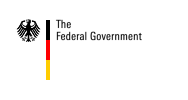The money is available for use in the current year. The damage left behind by last summer’s war between Israel and Hezbollah is still quite considerable. There is a need to move ahead with the reconstruction process, Wieczorek-Zeul said.
Germany will continue to provide assistance to Lebanon in the areas of water supplies, sewage disposal, and vocational training. The Development Ministry will provide 63 million euros for this purpose.
Peaceful resolution of differences
Foreign Minister Frank-Walter Steinmeier urged the Lebanese government and opposition to resolve their differences peacefully. In an interview with the newspaper Al Hayat he said: "I am convinced that the current crisis can only be resolved through dialogue between the government and the opposition." He also underscored the need to stick to democratic procedures.
International aid
The international community has come together to provide a significant amount of money to help Lebanon rebuild. In Paris the European Union, the United States, and Saudi Arabia pledged financial aid and loans for the Lebanese government totalling around six billion euros. Part of this money is earmarked for a reform program Prime Minister Fouad Siniora wants put in place to help reactivate the Lebanese economy.
The European Union pledged nearly 400 million euros, with Germany accounting for a little over a third of the total. Saudi Arabia promised 1.1 billion dollars and the United States 770 million. France wants to provide low-interest loans totalling more than 500 million euros, and the United Kingdom will contribute 37 million euros, primarily for refugee relief.
Strengthening Siniora government
The aim of the Paris donors’ conference was also to help strengthen the Siniora government, which has been under pressure from Hezbollah to resign since November. A general strike declared on January 23 was accompanied by violence in the streets.
On July 12, 2006 Hezbollah militiamen carried out a surprise cross-border attack on an Israeli border patrol. Three soldiers were killed, two wounded, and two abducted. Israel exercised its right to self-defense, responding with artillery fire, airstrikes, and a naval bombardment on Hezbollah strongholds, roads, and bridges in southern Lebanon. Ground forces were sent in to engage the Hezbollah militia. The ensuing war took a heavy toll on both sides. Large numbers of people were displaced, nearly a million in Southern Lebanon and around 300,000 in Northern Israel.
